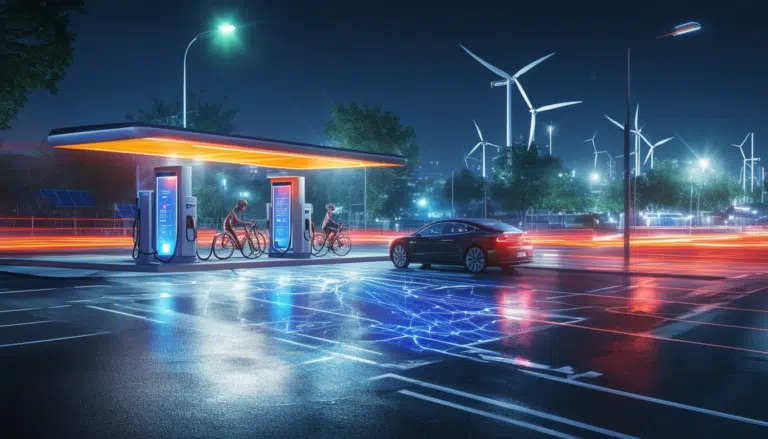Challenging the culture of consumption: reducing fuel expenditure
The growing concern about environmental impact and limited resources has led to a deep reflection on the current consumption culture, especially regarding fuel spending. Challenging this culture means adopting more sustainable and responsible approaches in the use of vehicles and in our daily activities. As technologies advance and global initiatives promote sustainability, it becomes essential to implement strategies that not only reduce fuel consumption but also encourage a more conscious lifestyle. These practices not only benefit the environment but also contribute to financial savings in the long term.
Challenging the consumption culture: reducing fuel spending
In a world where overconsumption has become normalized, it is vital to reconsider our choices regarding fuel use. This article explores how we can challenge this consumption culture by employing strategies that not only reduce fuel spending but also promote a more sustainable and responsible lifestyle. From the importance of education and vehicle maintenance to technological innovations and sustainability policies, we address various ways to minimize our impact on the environment and our wallets.
Education as a key tool
One of the most relevant aspects of reducing fuel consumption is education. Road education allows drivers to understand how their habits behind the wheel affect gasoline consumption. With proper knowledge, drivers can change their driving style, which translates into lower spending. Practices such as avoiding sudden accelerations and maintaining a constant speed can make a significant difference in vehicle performance.
Constant maintenance for optimal performance
Vehicle maintenance is another critical area. Regular inspections and maintaining proper oil levels and tire air pressure not only ensure safety but also optimize fuel consumption. A well-maintained engine consumes less, so investing in maintenance can result in significant savings in the long run.
Road conditions and their impact
Road conditions also play an important role in fuel consumption. Poorly maintained roads with potholes or steep inclines can cause vehicles to work harder, increasing gasoline expenditure. Choosing more efficient routes and being aware of traffic conditions are also strategies that can contribute to lower fuel consumption.
Technological innovations and their contribution
Technological innovations are revolutionizing the automotive sector. Projects like JetZero and easyJet, which aim to develop planes with mixed wings, are an example of the commitment to reducing fuel consumption through innovation. These types of advances have the potential to significantly reduce emissions and costs.
Sustainability policies
Sustainability policies implemented by governments also influence fuel consumption. Incentives for purchasing electric vehicles and awareness programs promoting responsible use are examples of how governments can encourage more sustainable behavior. The adoption of these policies helps to decrease dependence on fossil fuels and promotes a shift in consumption culture.
Practical tips to reduce daily consumption
There are multiple practical tips consumers can apply to reduce their fuel consumption. For example, avoiding the use of air conditioning in the vehicle when unnecessary, planning routes to minimize driving time, and practicing responsible consumption habits are simple yet effective strategies. Additionally, applications can be used to monitor fuel consumption and adjust driving habits.
The importance of a recycling culture
Fostering a recycling culture also impacts fuel consumption. By recycling and reusing materials, the need for producing new products is reduced, which often requires high energy and resource consumption. This environmental awareness should be promoted in all areas of daily life, from home to work.
Contributing to global consumption reduction
The challenge of reducing fuel spending is not only personal but has repercussions in a global context. Initiatives that promote the reduction of fuel use benefit not only individuals but also contribute to mitigating climate change and improving air quality. In this regard, every small effort counts and can create a significant positive impact.
Challenging the consumption culture: reducing fuel spending
The growing concern about climate change and the environmental impact of excessive fossil fuel use has led many to rethink their relationship with energy consumption. In this context, challenging the consumption culture becomes essential to reduce fuel spending and promote a more sustainable lifestyle. Encouraging a mindset of responsible consumption not only has ecological benefits but also translates into significant savings for consumers.
One of the most effective ways to reduce fuel spending involves adopting sustainable practices in vehicle usage. From choosing more efficient car models to implementing preventive maintenance techniques, these actions can make a big difference in the amount of fuel we consume. Education plays a crucial role in this process, enabling drivers to understand how their driving habits affect fuel performance and, consequently, the environment.
Furthermore, it is important to consider how external factors, such as road conditions and extreme temperatures, can influence fuel consumption. Adapting our travel to optimal conditions, as well as optimizing the use of air conditioning and other vehicle systems, will also significantly contribute to reducing spending. Similarly, employing innovative technologies, such as artificial intelligence to monitor usage, is an advancement that should not be underestimated.
Finally, cultivating conscious consumption habits at home, such as reducing the use of air conditioning or performing proper maintenance on appliances, complements this comprehensive vision towards a sustainable future. It is in the union of all these efforts that we can truly challenge the consumption culture and decrease fuel spending, benefiting both our economy and the environment.





